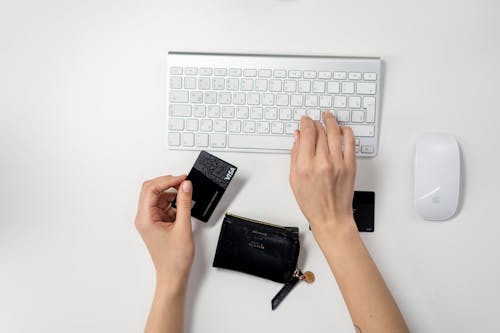Safe Online Shopping 101: Secure Your Finances in a Click
As experts in our respective fields, we're always looking for ways to streamline our operations and maximize efficiency. And in today's digital age, online shopping has become an integral part of how we procure goods and services for our businesses. But with convenience comes risk, especially when it comes to the security of our financial transactions. That's why I'm here to guide you through the ins and outs of safe online shopping, so you can protect your finances with just a few clicks.
Understanding the Risks
The Convenience Conundrum
Online shopping offers unparalleled convenience, allowing us to browse, compare, and purchase products with ease. But this convenience comes with a caveat: increased vulnerability to cyber threats. From phishing scams to malware-infected websites, there are plenty of pitfalls to watch out for when shopping online.
The Importance of Secure Transactions
When it comes to online shopping, security is paramount. Any breach in the transaction process—whether it's interception of payment information or unauthorized access to your accounts—can have dire consequences for your business's financial health and reputation.
Shopping Safely: Tips and Tricks
Stick to Trusted Websites
When shopping online, it's crucial to stick to reputable websites that have robust security measures in place. Look for sites with HTTPS encryption and a padlock icon in the address bar, indicating that your connection is secure. Avoid clicking on links in unsolicited emails or pop-up ads, as these could lead you to malicious websites masquerading as legitimate retailers. I once had a client who fell victim to a phishing scam after clicking on a link in an email advertising a too-good-to-be-true deal. The link took them to a fake website that mimicked their usual online retailer, but instead of receiving the products they ordered, their payment information was stolen. It was a costly lesson in the importance of sticking to trusted websites.
Use Strong, Unique Passwords
When creating accounts on online shopping websites, use strong, unique passwords that are difficult for hackers to guess. Avoid using easily guessable passwords like "password123" or "123456," and consider using a password manager to generate and store complex passwords securely. I once worked with a client who used the same password for all of their online accounts. When their favorite online retailer suffered a data breach, their password was compromised, leading to unauthorized access to multiple accounts. It was a wake-up call for them—and a reminder of the importance of using unique passwords for each account.
Enable Two-Factor Authentication
Two-factor authentication adds an extra layer of security to your online accounts by requiring a second form of verification, such as a code sent to your phone, in addition to your password. Enable two-factor authentication whenever possible to add an extra layer of protection against unauthorized access. I once helped a client set up two-factor authentication on their online shopping accounts after they fell victim to an account takeover. With two-factor authentication in place, they received a notification whenever someone tried to log in to their account from an unfamiliar device, giving them peace of mind that their accounts were secure.
Monitor Your Accounts Regularly
Keep a close eye on your bank and credit card statements for any unauthorized transactions, and report any suspicious activity to your financial institution immediately. Set up alerts for unusual activity, such as large purchases or transactions from unfamiliar locations, to catch fraudulent activity early. I had a client who discovered unauthorized charges on their business credit card statement after making a purchase from an online retailer. It turned out that their payment information had been compromised during the checkout process, highlighting the importance of monitoring accounts regularly for suspicious activity.
Choosing Payment Methods Wisely
Credit Cards vs. Debit Cards
When shopping online, it's generally safer to use a credit card rather than a debit card. Credit cards offer greater protection against fraud and unauthorized charges, as well as the ability to dispute charges if something goes wrong. Debit cards, on the other hand, are directly linked to your bank account, making it more difficult to recoup losses in the event of fraud.
Consider Alternative Payment Methods
In addition to credit cards, consider using alternative payment methods such as PayPal or virtual credit cards when shopping online. These payment methods offer an extra layer of security by keeping your financial information private and reducing the risk of unauthorized access to your accounts.
Wrapping Up
And there you have it, folks—Safe Online Shopping 101! By following these tips and tricks, you can protect your business's finances and shop with confidence in the digital world. Remember, convenience should never come at the expense of security, so always prioritize safety when shopping online. Happy shopping!


